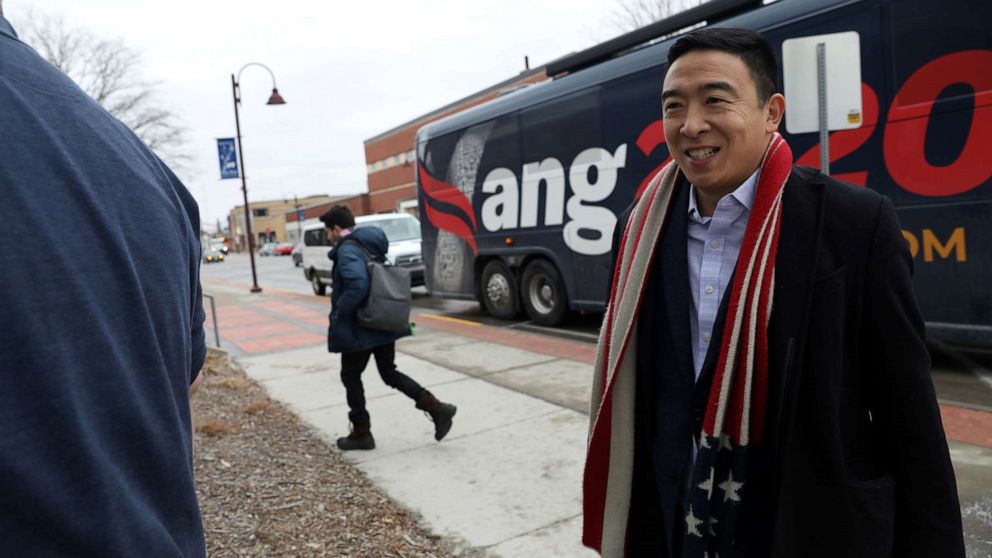Andrew Yang released his health care plan Monday morning, a proposal with elements of Medicare for All, but without the public option plan that even moderate candidates like former Vice President Joe Biden and South Bend, Indiana, Mayor Pete Buttigieg have committed to implementing.
“To be clear, I support the spirit of Medicare for All,” Yang said in outlining his plan, before adding, “Swiftly reformatting 18% of our economy and eliminating private insurance for millions of Americans is not a realistic strategy, so we need to provide a new way forward on healthcare for all Americans.”
In a statement a Yang campaign spokesperson said, “The U.S. is on track to spend a total of $60 trillion on healthcare between 2022-2031. Andrew Yang’s plan will cut about $9.7 trillion over this time period by tackling the root problems in the system, including prescription drug costs, utilizing tele-health, decreasing unnecessary medical services, diminishing billing and insurance related waste, minimizing doctor burnout, improving end of life care, and reducing poverty.”
His “A New Way Forward” plan includes pieces already in his competitors’ plans, but it differs dramatically from other candidates in several key ways too.
“Yang’s proposal does not include provisions targeted at expanding insurance coverage,” said Matt Fiedler, a fellow with University of Southern California’s nonpartisan Brookings Schaeffer Initiative for Health Policy.
Fiedler pointed to Yang’s suggestion that coverage cannot extend to everyone in a practical way, and said that’s not likely correct.
“While reducing the underlying cost of care is a meritorious goal, it is also quite feasible to achieve universal coverage even as we continue to work on reducing costs,” said Fiedler.
While Yang’s six-pronged plan doesn’t work to expand the current system, it does attempt to revamp it in a way that weaves in his previous policy pitches.
Just last week, Yang released his plan to lower prescription drug costs. His health care plan builds on some of his earlier promises to hold pharmaceutical companies accountable by directing the Food and Drug Administration and Department of Justice to work together in bringing criminal cases against pharmaceutical execs who use misleading marketing tactics.
Yang also commits to investing in telehealth, information and services given over the phone or internet, noting that the demand for physicians is outpacing the available supply.
His third prong also touches on the demand for doctors, and proposes forgiving their student loans and moving them through a fee-for-service system to a salary system.
He also wants to do more to shield doctors from malpractice lawsuits arguing, “We need to allow doctors to practice medicine that prioritizes their patients’ health without legal fear in the back of their minds.”
Yang’s last points focus on preventative care, and putting health care resources into suicide prevention, mental health checkups, handicapped patients and treatment for HIV/AIDS patients.
He closes the plan by explaining how he would minimize lobbyist influence in the health care industry, saying in part, he will refuse to hire anyone who previously worked at a pharmaceutical industry as a lobbyist.














